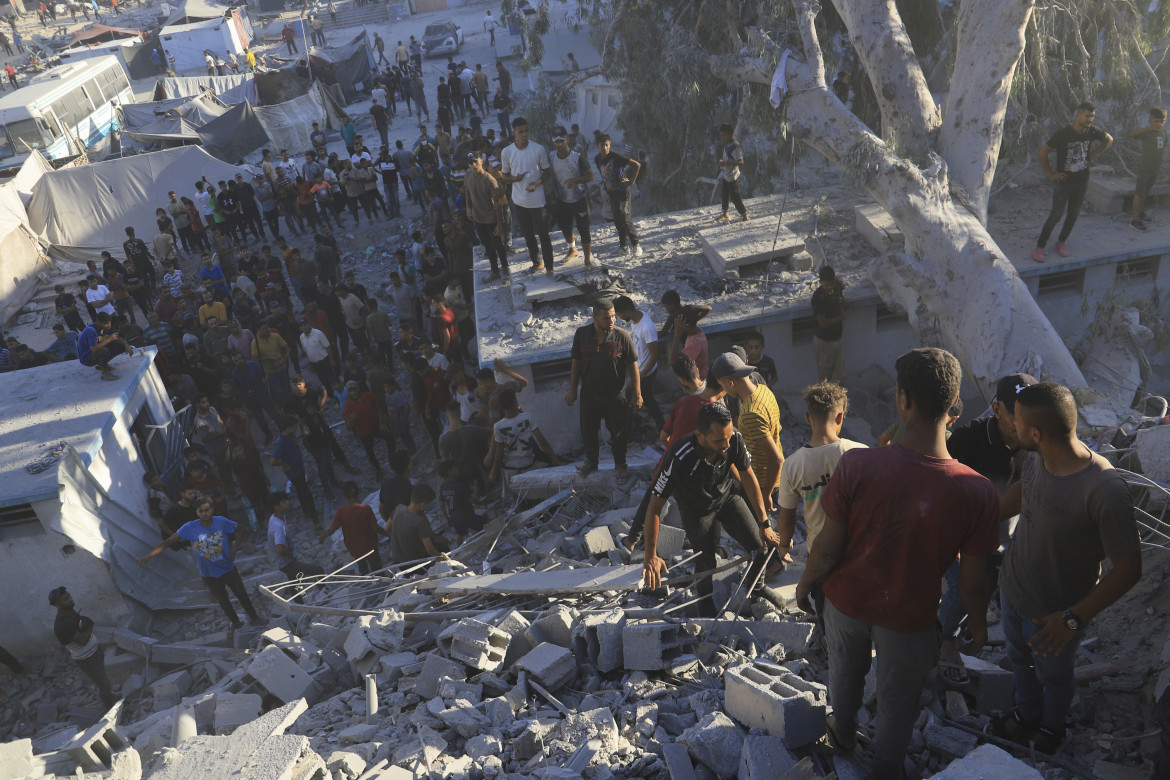Analysis
How Israel violates international law and how it can be stopped
For the past nine months, we have witnessed the constant violation of the principle of distinction that prohibits the direct and intentional targeting of civilians.

The Israeli strike in Khan Younis on Sunday, which killed at least 90 Palestinians, shows once again that Israel is ignoring the basic principles of international humanitarian law. For the past nine months, we have witnessed the constant violation of the principle of distinction that prohibits the direct and intentional targeting of civilians – an Israeli practice that has been widely documented by various international organizations and independent commissions of inquiry. This is nothing new: in all its military operations against Gaza since Cast Lead in 2008-2009, Israel has systematically carried out direct and intentional attacks against the civilian population.
On Sunday, Tel Aviv claimed that a Hamas top commander was present in the targeted area. Before anything else, let us clarify this point: even if that’s true, it does not justify the attack or turn the entire area into a legitimate military target. What Israel did remains a violation. Even if Israel were to prove – something it has never done since the beginning of the military offensive – that the entire area was a military target, there would still be a violation of the principle of proportionality, another core tenet of international law: it would be an excessive use of force.
However, there is no need to even get to the point of considering proportionality: for months now, we have been witnessing indiscriminate attacks by Israel. These violate the principle of distinction and the principle that requires parties to a conflict to take all effective precautions before launching an attack. Israel’s avowed application of these principles has turned out to be pure rhetoric.
As has the designation of safe zones: there is no refuge to be found anywhere in Gaza, as international organizations and institutions are telling us. The area bombed on Sunday was designated as a safe zone, but that very designation by Israel is in violation of international humanitarian law: the designation of safe zones should be done on the basis of an agreement between the warring parties. Israel is doing it unilaterally, and then attacking them anyway: since the October 13 bombing of Al Mawasi, Israel has been habitually bombing areas it had designated as safe. This designation is part of what the UN Special Rapporteur on Human Rights in the Occupied Palestinian Territories, Francesca Albanese, has called “humanitarian camouflage.”
And while such attacks are in themselves war crimes perpetrated against a civilian population, they also need to be understood as part of the context that was outlined by the International Court of Justice as of January 26, 2024: a plausible genocide, in which the bombings can plausibly be described as genocidal conduct – that is, conduct carried out with the intent to destroy all or part of the population of Gaza.
What can be done from a legal perspective? First of all, there is an urgent need to convene a meeting of the U.N. Security Council which would impose an immediate ceasefire on Israel – hopefully managing to bypass the U.S. veto. Second, it is necessary for states to impose sanctions on Israel (something they can do individually), starting with a total arms embargo. Such an act is not a matter of political discretion, but is a legal obligation under the Genocide Convention, designed precisely to prevent states from violating their preventive obligations. Finally, the International Criminal Court should issue arrest warrants against Israeli Prime Minister Netanyahu and Defense Minister Gallant, one of the few measures in international law that can have a deterrent effect.
However, we are currently at a stalemate: after waiting a long time for the request to come from Chief Prosecutor Khan, the Pre-Trial Chamber of the International Criminal Court accepted a brief from the UK authorities that effectively delays the issuance of arrest warrants. London petitioned the Court to reexamine the issue of whether it has jurisdiction over Israeli nationals. The Pre-Trial Chamber's decision to grant the UK’s request is very troubling: it legitimizes the kind of political interference that should not be allowed and delays the possible issuance of arrest warrants, despite the fact that genocide is taking place in Gaza right now.
Originally published at https://ilmanifesto.it/non-ce-obiettivo-che-sia-legittimo-per-questa-strage on 2024-07-14
